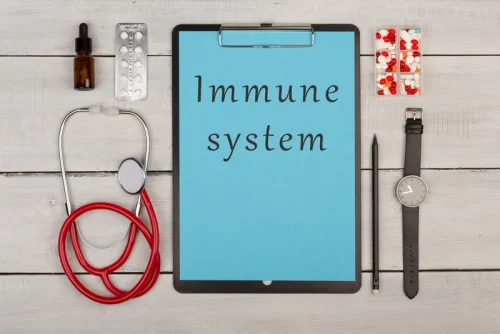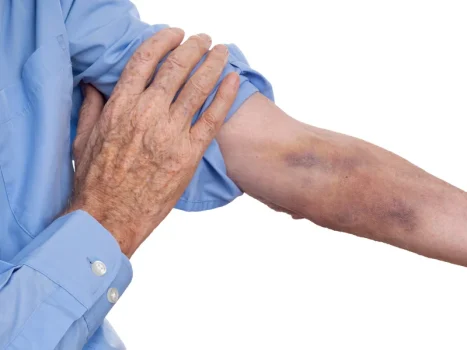
Congeners are chemical byproducts of the fermentation process that give wine and other alcoholic drinks their flavor. They’re found in higher concentrations in darker drinks, including red wine. A common go-to choice for a quick, healthy meal or snack on the go, high protein shakes and smoothies can actually produce dehydrating effects.
Does Alcohol Dehydrate Muscle, Skin, or Both?

For reference, a standard drink—12 ounces of beer, 5 ounces of wine, 1.5 ounces of liquor—has 14 grams of alcohol, according to the National Institute on Alcohol Abuse and Alcoholism [3]. If you’ve ever heard the term, “breaking the seal,” you know that alcohol has a diuretic effect on the body, meaning it causes you to urinate more frequently. The https://ecosoberhouse.com/ process is called diuresis, which on its own causes dehydration [1]. But that doesn’t mean you shouldn’t enjoy an adult beverage or two from time to time. Here’s what you need to know about how alcohol dehydrates the body and how to drink responsibly. It’s currently unknown whether or not alcohol dehydrates muscle, but it definitely weakens it.
So, which alcohols are the most hydrating — or the least dehydrating?
- Drinks with high sugar content or caffeine combined with liquor in mixed drinks can make symptoms worse for some.
- Of course, the more you urinate, the faster you’ll become dehydrated if you keep following up with more glasses of wine.
- But if you insist on having a drink or two, there are things you can do to mitigate the dehydrating effects of alcohol.
- In fact, our locations offer a dedicated IV drip therapy for hangovers and their common symptoms.
Your body has detectors that can sense both the saltiness of your water, and the volume of the water. If these detectors reckon that you are dehydrated, they does wine dehydrate you send a signal to the posterior pituitary gland, which starts pumping out ADH. The job of ADH is to stop you urinating, so you hang on to your precious water.
- In other words, the alcohol alone in one standard drink can make your body produce a little less than half a cup of pee.
- The action of suppressing this hormone exacerbates the diuretic effect and leads to dehydration.
- Dr. Liz Thach, MW, is a wine writer based in Napa and Sonoma, California.
- This is likely because of the interaction of sugar and water within the cells.
Alcohol and Electrolyte Balance

Beyond shifts in mood, dehydration can lead to disorientation and dizziness. If you have been out in the sun or have gone a while without drinking water, it’s important to hydrate as soon as possible. If these symptoms become severe, seek medical attention immediately. Just like urine color could indicate your hydration status, so can your urine frequency or volume, per MedlinePlus, a resource of the National Institutes of Health. If it’s been more than that since you’ve urinated, it could be a sign you’re dehydrated. Cutting back fluids on a long road trip may be normal to avoid making extra bathroom stops, but regularly going much of the day without urinating can mean you’re dehydrated.
But because wine has a higher alcohol content than most types of beer, it’s more dehydrating than the latter. In addition, beer usually has more water content as beer is typically served in more ounces per glass or bottle than wine, which may be as little as five ounces or so per glass. This makes sense when you consider the diuretic effect of alcohol on your body and its vasopressin production. For example, an average bottle or glass of beer has an alcohol content concentration of three to seven percent. On the other hand, wine is usually closer to around 11 to 14 percent alcohol content per glass. Unfortunately, alcohol reduces the natural production of vasopressin in your body.
Recognizing Dehydration from Wine Consumption

But when it comes down to it, the type of wine’s impact on hydration is more about the alcohol content than these other bits. So, whether it’s red or white, both can dehydrate you, mainly depending on their alcohol strength and how much you drink. That makes beer the clear contender as the least dehydrating, with a big caveat. As important as alcohol content may be, even more important is how much you drink in a given sitting. Drink too many beers too quickly, and you’ll end up as dehydrated as you would taking a shot at the bar. “Drinking one beer over the course of a dinner will not increase your blood alcohol levels as much as if you drank four beers in the same time frame,” says Rumsey.
- This test is for informational purposes only and is not a substitution for a diagnosis by a trained medical professional.
- Brittany Burke Robert has written about health for Oprah Daily, Well+Good, Livestrong, Reebok, and other publications and digital brands for over 15 years.
- While drinking plenty of water is crucial to compensate for the fluid loss caused by alcohol, water alone will not hydrate you.
- The research on alcohol shows that drinking even moderate amounts can be unhealthy, but does the occasional beer or glass of wine help you meet your hydration goals anyway?
- And when ADH release is suppressed, your body’s natural mechanism for holding onto fluid ceases to function.
Sugary and caffeinated drinks can have diuretic effects similar to alcohol, leading to further dehydration. So don’t mix your alcohol with these or drink them between alcoholic beverages. For example, exercising while drinking can lead to greater dehydration due to increased sweating. Similarly, taking certain medications, such as diuretics or antihistamines, can exacerbate alcohol’s dehydrating effects. Generally, if you have already eaten a meal or if you are drinking a glass of wine with your meal, you won’t experience many of the effects of dehydration, if any.
For example, research from 2017 found that in elderly men at risk of dehydration, moderate consumption of high alcoholic beverages such as wine and liquor caused a diuretic effect. Beverages with lower alcohol content, such as beer, did not appear to have this effect. Insulin resistance is a condition linked to diabetes in which the body’s cells don’t respond well to insulin, which can lead to an imbalance of blood sugar and increase the risk of type 2 diabetes. Although alcohol has no health benefits, many people enjoy drinking beer, wine, or other alcoholic beverages, and there are several ways you can minimize or avoid alcohol dehydration.
Is Ginger Beer Alcoholic? – A Brief History of Ginger Beer

Darker alcoholic beverages, like red wine, also contain higher concentrations of congeners (more on these in a minute), which may affect how your body processes alcohol, leaving it in your system longer. If hydration is your number-one priority, avoiding or significantly reducing consumption of these drinks is probably your best bet. But another option would be to get creative and make alternatives for these classic beverages at home. Learning to listen to your body, recognizing the signs of dehydration, and drinking plenty of water during the day can also ensure you’re meeting your fluid needs. Interestingly, a review of 49 studies even reported that caffeinated energy drinks, wine, and spirits can all significantly increase urine production (14). In another study in 20 older adults, drinking just 2 servings of wine increased short-term urine output.
